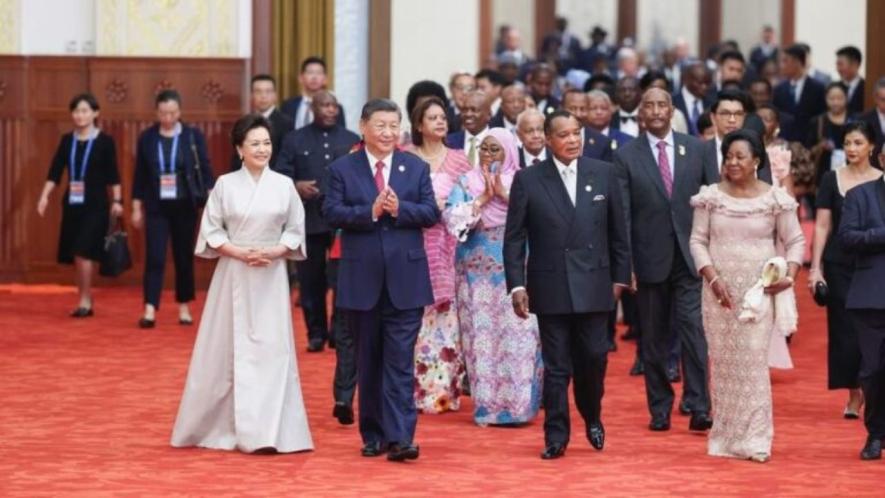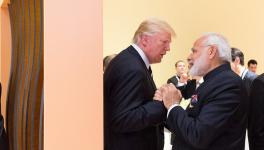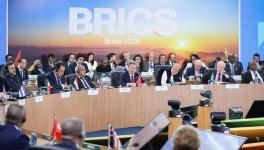China to Remove Tariffs on African Goods

Chinese President Xi Jinping and his wife Peng Liyuan, together with international guests attending the 2024 Summit of the Forum on China-Africa Cooperation (FOCAC), enter the venue for a welcome banquet held at the Great Hall of the People in Beijing, capital of China, Sept. 4, 2024. Photo: Xinhua/Liu Bin
China has announced its intention to eliminate tariffs on imports from all 53 African countries. The move is poised to significantly strengthen China-Africa trade relations and open new opportunities for African exporters.
The announcement was made during the Ministerial Meeting of Coordinators on the Implementation of the Follow-up Actions of the Forum on China-Africa Cooperation (FOCAC), held from June 10 to 12, 2025, in Changsha, Hunan Province. The high-level forum brought together representatives from China, 53 African nations, and the African Union Commission to assess the progress of commitments made during the 2024 Beijing Summit and to chart a course for future cooperation.
China’s proposed zero-tariff policy, once implemented, will apply to 100% of tariff lines for all African countries with diplomatic ties to China, excluding Swaziland (also called eSwatini), which does not currently maintain formal relations with Beijing. Previously, the zero-tariff treatment was only available to 33 African countries. The announcement builds on the zero-tariff treatment for least developed countries (LDCs) that came into effect on December 1, 2024, which has already boosted exports from several African nations into China.
“China is ready to negotiate and sign the China-Africa Economic Partnership for Shared Development to expand the zero-tariff treatment to all 53 African countries,” the China-Africa Changsha declaration stated. “We welcome quality products from Africa to the Chinese market.”
China-Africa trade at record highs
China has been Africa’s largest trading partner for 15 consecutive years, with the trade volume reaching USD 295.6 billion in 2024, setting a new record. In the first quarter of 2025 alone, bilateral trade stood at USD 72.6 billion, reflecting a 2.7% increase year on year
In 2023, Africa’s exports to China were valued at approximately USD 170 billion (£125 billion), highlighting the continent’s growing importance in China’s global trade strategy.
A distinct global approach
China’s decision comes at a time when the United States and other Western powers have pursued protectionist policies, including tariff hikes and trade restrictions on several developing countries. The Changsha Declaration criticized these practices, stating that “the frequent occurrence of unilateralism, protectionism, and economic bullying has created severe difficulties for the economic and social development of African countries.”
In direct contrast, China emphasized that its approach is rooted in solidarity, multilateralism, and mutual benefit. The declaration urged the international community, especially the United States, to resolve trade disputes through “consultation based on equality, respect, and mutual benefit” instead of resorting to tariffs that disrupt the global economic order.
Deepening China-Africa cooperation
China’s tariff offer is part of a broader strategic alignment with Africa, which includes supporting key areas such as green industry, e-commerce, artificial intelligence, security, and infrastructure development.
In addition to trade facilitation, China pledged to enhance technical training, customs clearance processes, and market access procedures to support African exporters. The country is also committed to advancing the ten partnership actions for modernization and supporting the African Union’s Agenda 2063, which aims to transform the continent’s economic landscape over the next decade.
China’s long-standing cooperation with Africa under FOCAC has been lauded by African leaders as a model for Global South solidarity. “The Forum on China-Africa Cooperation has become a fine example of the unity and cooperation of the Global South,” the Changsha Declaration reiterated.
Outlook
If fully implemented, the removal of tariffs on African goods would significantly diversify Africa’s export markets and reduce dependence on traditional Western trading partners. It may also stimulate local industries across the continent by easing access to one of the world’s largest consumer markets.
As China continues to emerge as a champion of the Global South, this latest development is part of a growing realignment in international trade partnerships, with Africa increasingly at the center of Beijing’s global partnerships and solidarity.
Courtesy: Peoples Dispatch
Get the latest reports & analysis with people's perspective on Protests, movements & deep analytical videos, discussions of the current affairs in your Telegram app. Subscribe to NewsClick's Telegram channel & get Real-Time updates on stories, as they get published on our website.
























